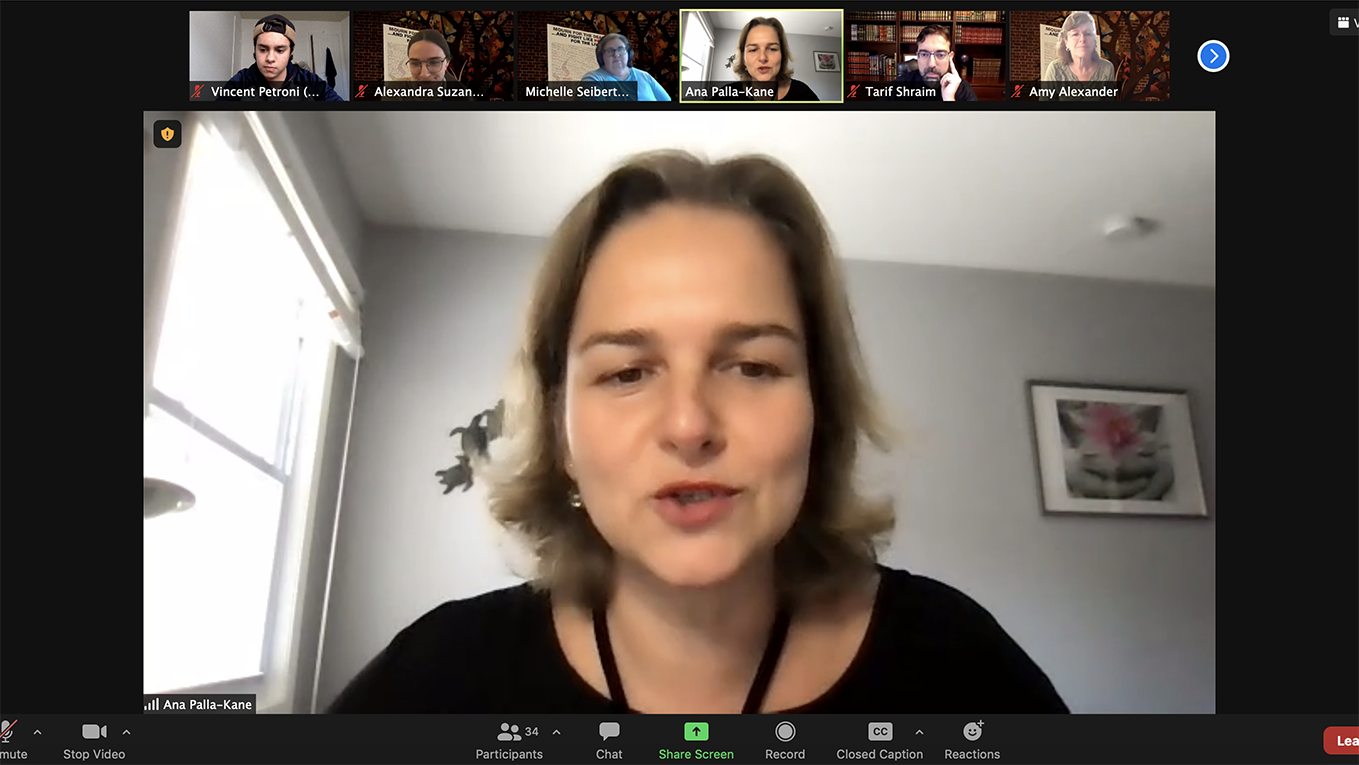By Vincent Petroni
For The Diamondback
Content warning: This article contains mention of abuse.
The President’s Commission on Disability Issues at the University of Maryland held a vigil Monday as a part of the Disability Day of Mourning, which honors people with disabilities who were murdered by family members or caregivers.
This university holds a vigil each year on March 1, but the event was held virtually this year due to the coronavirus pandemic.
The memorial began with Alex Peterson, a graduate assistant for the commission who helped organize this year’s event, explaining the virtual accommodations available, including American Sign Language interpreters and closed-captioning.
This should become a norm for all events, not just for events held by the commission, Peterson said, so more people can have equal access.
“That’s definitely been a priority, making sure that we have those services,” Peterson said in an interview. “It opens up the door for so many more people to engage.”
The annual vigil is a part of a national movement, which was started by the Autistic Self Advocacy Network in 2012. Last year, 10 people attended the vigil at this university. This year, 39 people attended virtually.
[Some UMD community members have mixed feelings on the push for Harriet Tubman on $20 bill]
Dr. Ana Palla-Kane, one of the commission’s chairs and a kinesiology lecturer, said having the event online allowed for people outside of the university community to attend, which helps bring awareness and supports the commission in educating more people on the issue.
“We hope that every event that we offer can touch as many people as possible, so we can begin to have a world that is more equitable, that we can have a world that is inclusive,” Palla-Kane said.
In the past five years, there have been more than 700 disabled victims of filicide, which in the disabled community is used to refer to people with disabilities killed by family members or caregivers, according to the ASAN. Victims are typically disregarded, according to the ASAN, while caretakers are shown sympathy during trials and given lighter sentences — if they are sentenced at all.
“Often when people are killed by their caregivers, the stories that we see in the media are about the caregiver,” said Michelle Appel, an event coordinator. “So, even in death these people are forgotten.”
Appel came up with the idea of having the first Disability Day of Mourning vigil at this university a few years ago. During Monday’s vigil, she read from “Killing Words” by Zoe Gross, a text that expresses a need for awareness of how the media portrays these murders.
[USM presidents address lack of trust in COVID vaccine due to history of medical racism]
After the reading, volunteers read about 130 names aloud. Many of the victims were older, some between the ages of 40 and 70. “Name unknown” was used for some victims honored.
A moment of silence and a prayer followed.
In an interview, Appel said she believes filicide victims are an example of what happens when people take “ableism to its extreme.” Society has a long way to go on confronting ableism in general, Appel and Peterson said.
“It’s not something that should have stigma, it’s something that should be embraced as another part of ourselves,” Peterson said. “We all have, as human beings, so many different aspects to our identity and disability is one of them.”
Peterson said she hopes that giving these victims a voice through the vigil will bring more awareness to the issue and prevent it from happening again in the future.
“It’s a really sad reality that we have to hold a vigil for disabled people who have been murdered,” Peterson said. “But it also, I think, is empowering because we’re lifting their memories and we’re honoring them.”
At the end of the vigil, Appel read the poem “You Get Proud by Practicing” by Laura Hershey echoing the words: “Remember, you weren’t the one who made you ashamed, but you are the one who can make you proud.”



